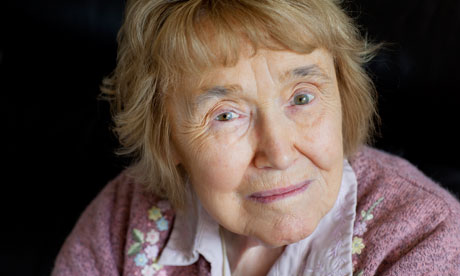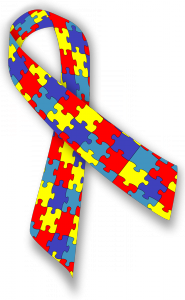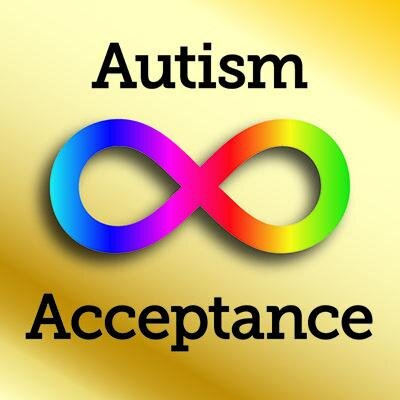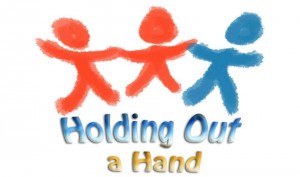
Holding Out a Hand
Welcome to our latest guest blog from a member of the autism community. Today Ryan Hendry tells us about his transition from school to university as a person on the autism spectrum!
Ryan a 19 year old Law Student at Queen’s University Belfast, and I have Asperger’s Syndrome, which was diagnosed when I was 14. He also runs a group which aims to promote and raise awareness of Autism, Asperger’s and ASD.
You can read Ryan’s blog here http://whatsitliketolivewithautism.com/ or follow him on Facebook at
www.facebook.com/holdingoutahand
Ryan says “For several hundred thousand teenagers every year throughout the UK, the transition from secondary school to university is fairly straightforward. But for a number of people on the spectrum like me, the process can be anything but.
The difference in styles between school and university is enormous. From the timetabling of classes to the way classes are structured, everything seems to be different. As an 18 year-old leaving school education for the first time in my life it seemed terrifying because of the sheer number of changes I’d have to face.
One of my biggest fears was that the support that Queen’s University would provide me was going
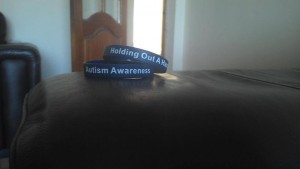
Autism Awareness at University
to be a standard “box-ticking” type that would not be sufficient in order to allow me to cope with the change. However, at the end of July, the university asked me to attend their offices one day, in order to allow for an assessment of my condition. This was a very straightforward process and allowed the university to tailor the support that was to be provided to my exact needs, much to my relief.
My current support is much the same as it was in school. I have a note-taker that attends all my lectures and tutorial classes, and it helps me not to worry about being unsure of what parts of a lecture to note down, as well as providing a consistent style of presentation for the notes, helping me to keep them organised. The support provided during exams is also largely the same: I’m given extra time, separate invigilation, a computer to complete the exams on, and rest breaks if needed at set intervals. This continuation of support was a huge help in helping me settle in.
Facing my fears
The next big step is the change in scale from school. In my school, our classes had, on average, 20 to 25 people in them. In university, my lectures can have upwards of 200 people in the room at one time. As someone who has always had a fear of big crowds, this was particularly concerning to me. However, I found that although the number at first sounds very large, the lecture theatre that our lectures were held in was larger still, which allowed the crowd to spread out, helping to ease my fear of being squeezed into a room with 200 other people. For tutorial classes, these usually contain around 15 to 20 people and are quite close in style to classes in school so these did not represent a substantial concern for me.
My biggest fear was the reaction of other people. I had sometimes been bullied at my secondary school and although it had completely stopped by the time I started my sixth year, the fear started to creep back in when university loomed. The fear was less about being bullied, and more about being left out of the group and not being able to make any friends. I was also worried about the reaction of the other students when they would begin to notice something a little bit different about me. Would they be sympathetic? Would they be understanding? Or would they be ignorant to the problem? This concern continued over the course of the summer and, despite frequent attempts by my family and friends to persuade me otherwise, the fear never went away.
Settling in
The first day at university was terrifying until I attended the induction day that had been set up by the University. This was an extremely helpful day for me, as it helped me to feel a bit more comfortable. I realised that many other people were in the same position as me, starting a new part of their education, in a new place with new people. The fact that we all had shared interests allowed us to have a common subject to talk about and get to know each other about.
My experiences with other students have been particularly encouraging for me. I wear a wristband, that says Autism Awareness on it, and one of my friends happened to notice it and asked what it was about. I explained to her about my condition, and that I had set up a group to try and help other people overcome the same obstacles that I was now facing. This was the true test for me, as I had no idea what the reaction was going to be, or whether I should even tell anyone. Her reaction was one of slight shock and she said that she only understood a little bit about autism. She also asked me if I wanted her to try and let other people she knew about my condition, in such a way that it wouldn’t come as much of a shock to people, which did encourage me. The overwhelming reaction of most people to the news of me having autism is one of slight surprise, which quickly turns to understanding and also an interest in gaining a bigger understanding of the condition.
Adapting to my new life
Even with all these positives, it still did take some time to get used to the change, and I knew that it was always going to be a struggle at the start to get into the ways of life at university. I will admit the first few weeks were a huge battle, as for the first time in my life I was expected to buy my own textbooks and basically build my own timetable, in order to allow myself to complete my work on time and to an acceptable standard. This did take a few months to get used to, but I knew that eventually I would get it. There were a few hard days, and some meltdowns as the stress built up at times, but by the time Christmas had arrived I found myself in a good routine and starting to fit comfortably into the life of a student. There is the occasional day that I do have a struggle, or something doesn’t go the way I expected it to, but I try and learn from these in order to deal with the situation better the next time around. The support my friends have provided me with on the bad days has been very helpful. They keep telling me that everyone has bad days, not just me.
Looking back now, the decision to go to university has had an enormous effect on me, and it has allowed me to do things I never thought I was capable of. It has improved my confidence dramatically and I now feel at ease with being able to do the tasks that others find second-nature, such as buying my own train ticket, going for lunch with friends, going to the library to study, and being able to plan my own day has given me an amazing sense of freedom. As well as this, just recently I finally overcame one of my biggest fears, public speaking, by giving a talk to a group of teenagers who have autism. Although the group only consisted of a dozen people, it was something that I previously would never have even considered doing, but thanks to the confidence my experience at university has given me, I was able to do it, and according to the person in charge of the group, they said it was an excellent talk.
